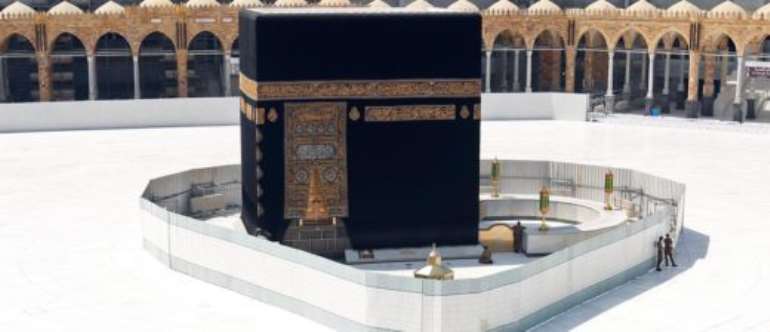Ramadan Fasting In Times Of COVID -19 Lockdown In Northern Nigeria

Nobody knows maybe the 1441 AH which is equivalent to the 2020 Gregorian calendar is the last Ramadan that some of us will witness in their life. Not all of us will live long to see 2021. Should this be our last Ramadan, we pray to Almighty Allah to accept it from us.
It pains the 1.8 billion Muslims across the world to fast the holy month of Ramadan with almost all the mosques in all counties shut down from performing the congregational prayers because of the scourge of coronavirus pandemic. We welcomed the 2020 glorious month of Ramadan in abnormal and sad circumstances that forbid us from congregating in the mosque to worship Allah, our Lord and sustainer with whose permit we exist. "Public health measures that require social distancing are at odds with Iftar, the nightly breaking of the fast and the usual mosque gatherings with the community." Congregational prayers and mosques are to a Muslim what good health is to a living organism. Without a mosque, the life of a Muslim is severed and incomplete.
Muslims in northern Nigeria fast the 2020 Ramadan under the most hardest condition. In the north-east, government has intensified the war against Boko Haram with heavy aerial bombardments and ground attacks. The military offensive has disrupted normal life in the affected areas. In the north western States of Katsina, Kaduna and Sokoto, and Plateau north in plateau state, north central Nigeria, soulles bandits have made lives of unsuspecting inhabitants of some towns unbearable by extortion of food items, rape, abduction, arson and reckless murder.
The hardship, the outbreak of Covid-19 and the intolerable heat weather in a fasting period have caused the massive death of mostly aged people, wide spread hunger, despondency and anxiety among the people. We never experienced this hardship in the past.
The substantial chunks of Muslim families in the north are poor daily wage earners who live from hand to mouth. The agonizing condition under which our people fast this year is unprecedented. You imagine how can a fasting daily wage earner, who has no stable and sustainable income, cope with life under lockdown.
The S.A to the president on Special Investment Program (SIP) Sama'ila Ahmed told the BBC that the program could capture and cater for a paltry 2.9 million individuals and poor households in the country. He however gave the number of Nigerians who need such help to a whopping 86 million people. The National Bureau of Statics (NBS) later corroborates Ahmed's statement in its report about poverty and inequality from September 2018 to October 2019. It reported that 40% which represents a little above 82 million Nigerians live on less than $1 (N381) a day. Majority of this number lives in Muslims populated States in the North.
There is truth in the saying that there is a silver lining in the covid-19 lockdown. To some people, even though they are few in number, fasting under lockdown opens a peak productive window for them. In other words, it accords them with a quality time to work from home and focus on useful things in life. The lockdown provides few people with the ample time and opportunity to do a lot of self reflection, read, memorize and reflect on the verses of the Qur'an. They enjoy peace and seclusion in times of economic doldrums.
Today is the 27th day of Ramadan. We have 2 or 3 days at most to complete 29 or 30 days of fasting. May Allah accept our act of sincere prayer and worship. May we also witness next Ramadan in robust health, Iman, peace and with good sustainance.
𝑺𝒂𝒍𝒆𝒉 𝑩𝒂𝒕𝒖𝒓𝒆 𝗯𝗮𝘁𝘂𝗿𝗲𝘀𝘂𝗯𝗮@𝘆𝗮𝗵𝗼𝗼.𝗰𝗼.𝘂𝗸
